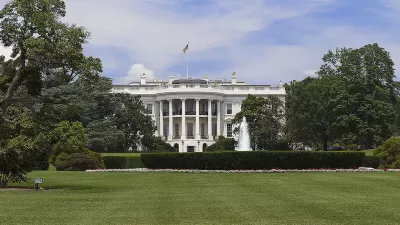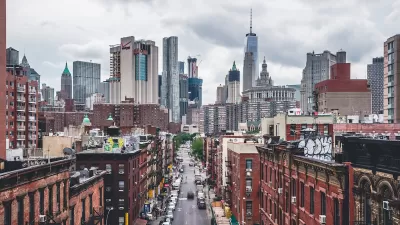Secretary of State John Kerry recently began a two-year term as the chair of the Acrtic Council. He used the occasion to make a call for a stronger role for cities in international efforts to fight climate change.
"Acknowledging that governments may not be moving fast enough to avert a climate disaster, Secretary of State John F. Kerry is pushing for a bigger role for cities, universities and other institutions in achieving rapid cuts in greenhouse-gas emissions," reports Joby Warrick. The remarks precede upcoming negotiations in Paris, known as COP 21, as the United Nations continues efforts to create an international accord to replace the Kyoto Protocol.
Kerry is quoted in the article: "A lot of mayors around the world are ahead of their national governments, and a lot of local citizens are well ahead of their elected leaders….I think we need to find a way to highlight that."
Carey L. Biron also picked up on the news for Citiscope, providing additional context on Secretary Kerry's remarks after describing them as "forceful":
"Indeed, for all of the new interest in bolstering climate-related action from cities and non-state actors, there is yet to be any formal way of integrating these entities into the COP 21 process — both in terms of soliciting emissions pledges and in terms of getting their views into the eventual text of the Paris Accord. The current COP 21 negotiating text, for instance, includes almost no reference whatsoever to cities."
FULL STORY: Kerry, on eve of Arctic summit, calls for citizen pressure on climate change

Planetizen Federal Action Tracker
A weekly monitor of how Trump’s orders and actions are impacting planners and planning in America.

Chicago’s Ghost Rails
Just beneath the surface of the modern city lie the remnants of its expansive early 20th-century streetcar system.

San Antonio and Austin are Fusing Into one Massive Megaregion
The region spanning the two central Texas cities is growing fast, posing challenges for local infrastructure and water supplies.

Since Zion's Shuttles Went Electric “The Smog is Gone”
Visitors to Zion National Park can enjoy the canyon via the nation’s first fully electric park shuttle system.

Trump Distributing DOT Safety Funds at 1/10 Rate of Biden
Funds for Safe Streets and other transportation safety and equity programs are being held up by administrative reviews and conflicts with the Trump administration’s priorities.

German Cities Subsidize Taxis for Women Amid Wave of Violence
Free or low-cost taxi rides can help women navigate cities more safely, but critics say the programs don't address the root causes of violence against women.
Urban Design for Planners 1: Software Tools
This six-course series explores essential urban design concepts using open source software and equips planners with the tools they need to participate fully in the urban design process.
Planning for Universal Design
Learn the tools for implementing Universal Design in planning regulations.
planning NEXT
Appalachian Highlands Housing Partners
Mpact (founded as Rail~Volution)
City of Camden Redevelopment Agency
City of Astoria
City of Portland
City of Laramie





























